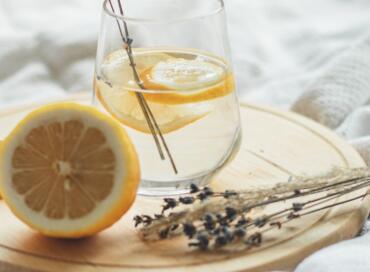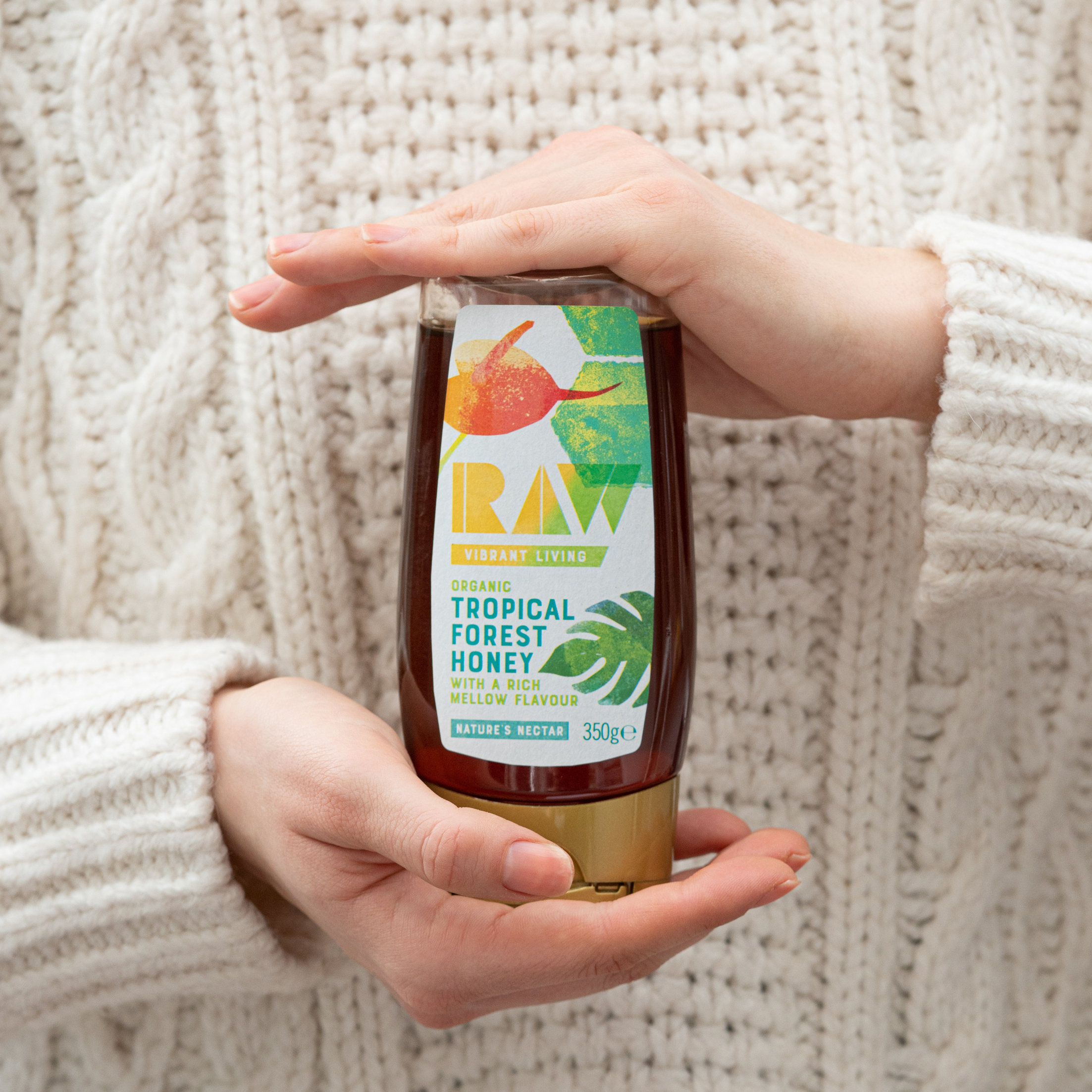Hey, Honey!
Raw – Pure – Organic… What does it all mean, anyway?
What Actually Is Honey?
Everyone knows honey, right? That sweet, syrupy amber liquid that’s so good in well, everything! Ask anyone and they’ll be able to tell you: honey is technically, uh… well… is it something to do with pollen?
Not quite! Honey is actually converted plant nectar. It’s sugar-rich flower nectar that a forager bee has collected in its honey stomach – the ‘proventriculus’ – and taken back to the hive to be processed by a group of worker bees. These girls (yep, the workers are female) ingest and regurgitate the nectar in turn, which through the addition of enzymes and evaporation of water eventually becomes honey. The process is incredible!
Honey in this form is carefully stored in the hive’s honeycombs and sealed with a wax cap. It contains fructose and glucose, a whole hosts of vitamins and minerals, antioxidants, enzymes and amino acids.
The Honey Dictionary
Let’s start with the terminology.
Pure
Simply means that it’s all honey in the jar. Some brands ‘dilute’ honey with other substances, like corn syrup – always check that you’re getting 100% honey.
Filtered/Unfiltered
Not to be confused with straining, which removes larger particles e.g. of broken bee wings. Filtering removes very small particles, such as pollen, losing some of the benefits of the honey. In order to process honey in this way, it usually has to be heated to make it runnier, which often means that ‘filtered’ honey is also not ‘raw’ honey.
Raw
This means the honey has never been heated beyond 42°C – the temperature of the hive. Keeping honey raw ensures the full complement of enzymes and nutrients are preserved.
Pasteurised
When honey is pasteurised, it’s heated to around 71°C then cooled rapidly. This process is designed to kill microorganisms such as yeast, to prolong shelf life and consistency. In doing so however, many of the beneficial components, such as enzymes and antioxidants, are also destroyed. This study found that raw honey had over 4 times the quantity of antioxidants than its pasteurised counterpart.
Organic
You might guess that this means the flowers that the bees collect nectar from have not been treated with chemicals, and you’d be right. But there’s much more to it than this. Organic certification means the beekeepers have adhered to a stringent set of regulations and criteria in terms of bee foraging areas, sources of honey, bee management, extraction, and transportation and packaging materials.
So… Which is Best?
If you’re talking flavour, it’s widely accepted that raw honey claims the prize. But for us, flavour isn’t the only consideration. We like our food to be bursting with nutrition and causing the least possible impact to the environment. If you’re the same, raw organic honey is the one for you.
Best for the Environment
70% of UK crops benefit from visits from honey bees, and they’re sadly in decline. For honey to be certified organic, the area within a 3 km radius around the beehives must be predominantly covered by organic (pesticide-free) or low input farmland and no major sources of pollution such as roads can be within this area. So, keeping happy bees is a boost for the countryside and for our food industry.
Best for You
Antioxidants, prebiotics, vitamins and minerals, raw honey is bursting with goodness. See here for our round-up of the top 10 benefits.
Best for Bees
In organic beekeeping, the welfare of bees is paramount. Here are some of the criteria that must be met:
- Wings of the bees are not trimmed, as they are in many commercial hives.
- Only excess honey is harvested.
- Harvesting must be done without bee repellents.
- When feeding is necessary (if bees cannot find food all year round) it’s only ever with certified organic honey or sugar products.
- Genetically altered bee species must not be used.
- Destruction of bees is prohibited.
- Diseases must be prevented as far as possible and treated naturally.
- Hives must be made of natural materials, without paints and varnishes.
Okay, we’re biased, but we hope you can see why! For us, pure, raw, unfiltered, organic is the bare minimum for honey. Beyond that, we’re perfectionists for flavour. Did you know honey carries the flavours of the plants the nectar was derived from? Our growers place their hives for the most intensely delicious floral notes – browse our range here (and try them all if you don’t believe us)!





